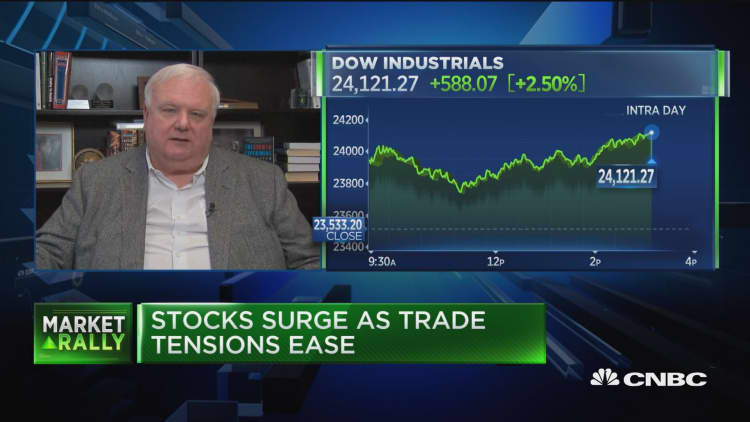
It's yet to be seen if President Donald Trump's tough trade talk will work but there have been some promising signs, said Larry Lindsey, who served as a top economic advisor to President George W. Bush.
Trump signed an executive memorandum on Thursday that would impose tariffs on up to $60 billion in Chinese imports.
"Trump is trying something new. We won't know until it's tried whether it's going to work or not," Lindsey said on CNBC's "Closing Bell" Monday.
"The Chinese response so far suggests that they're more willing to negotiate then they have in the past."
On Monday, China Premier Li Keqian said the two countries should maintain negotiations and reiterated pledges to ease access for American businesses. And over the weekend, Treasury Secretary Steven Mnuchin said he is "hopeful" the United States can work out a trade agreement with China.
In fact, Lindsey, who served as director of the National Economic Council under Bush, said the last three administrations have taken a more conciliatory approach to trade with China and it hasn't worked.
Meanwhile, he thinks the market is overreacting to the trade talk — both when it went down last week and when it rallied Monday. The Dow Jones industrial average dropped more than 400 points on Frida, but closed up 669.40 points on Monday.
"The market needs to take a deep breath" because Trump is "unpredictable," said Lindsey, now CEO of The Lindsey Group.
"What's happening in monetary policy is going to be far, far more important to the market than these little hiccups we have in trade."


